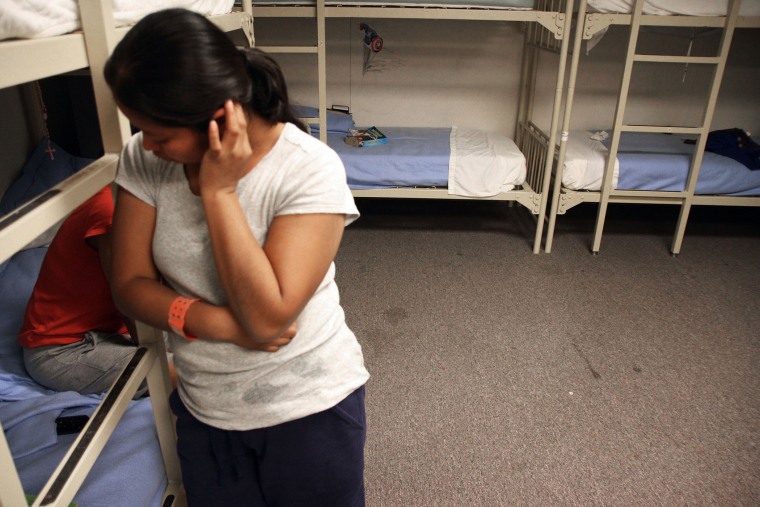The Obama administration's legal footing for its immigrant detention policy has started to slip, leaving the U.S. government with limited options as it seeks to prevent another humanitarian crisis along its southern border.
Courts have been chipping away at the policy since the U.S. first starting detaining families last June -- a federal judge in California has ordered all detained children and parents released, while another judge in Washington, D.C., has said the U.S. may not detain asylum-seekers for the sole purpose of deterring migration.
RELATED: Getting to the heart of a humanitarian crisis
The latest blow comes out of Pennsylvania, where the Department of Health Services announced Thursday that it will not renew the license for an immigrant family detention center there once it expires in February. Without licensing and oversight, the federal government would be violating a long-standing legal settlement that outlines clear standards for facilities that hold children in federal custody.
According to the ruling of one judge, however, the federal government is already violating that settlement. California District Judge Dolly Gee issued the scathing opinion in July, faulting the administration for failing to ensure basic standards for childcare, even as the government was building two brand-new detention centers from the ground up.
Gee later rejected the administration’s request to reconsider and gave officials until Friday to comply with her decision.
But despite Gee’s order for the prompt release of the immigrant mothers and children in custody, administration officials have defied the ruling by continuing to detain families caught entering the U.S. illegally.
Department of Homeland Security Secretary Jeh Johnson has said that he and the department “disagree with portions of the legal reasoning in the decision.” They have implemented a number of reforms in recent months to speed up the timeline that families are checked into the detention centers, taken through the legal process, and ultimately released. But there is no indication that the administration is at all willing to shutter the facilities entirely.
"Its form has slightly changed, but it’s still family detention," said Olga Byrne of the advocacy group Human Rights First. "The government has made clear that they interpret the court’s order to allow them some ability to detain children."
RELATED: Immigration report finds systemic detention failures
The federal government resurrected its detention policy after tens of thousands of immigrant children and their parents strained resources at the southern border in 2014. Two new detention centers built in South Texas were designed to process the families and deter more from making the dangerous journey north, but the U.S. ran into trouble once it became clear that the vast majority of the immigrants detained were in fact asylum-seekers, granting them legal protection.
The announcement from Pennsylvania's licensing board, together with deadline given by Judge Gee to comply with her court order, mark what advocacy groups hope will be the death knell for the government's policy of detaining immigrant families.
Muzaffar Chishti, director of the Migration Policy Institute, expects that top administration officials will continue to try to keep its options open in the face of opposition in the courts. "It’s not clear how much they want to comply to the judge’s order to the letter of the law, or how much they want to retain their right to keep people detained," he said.
